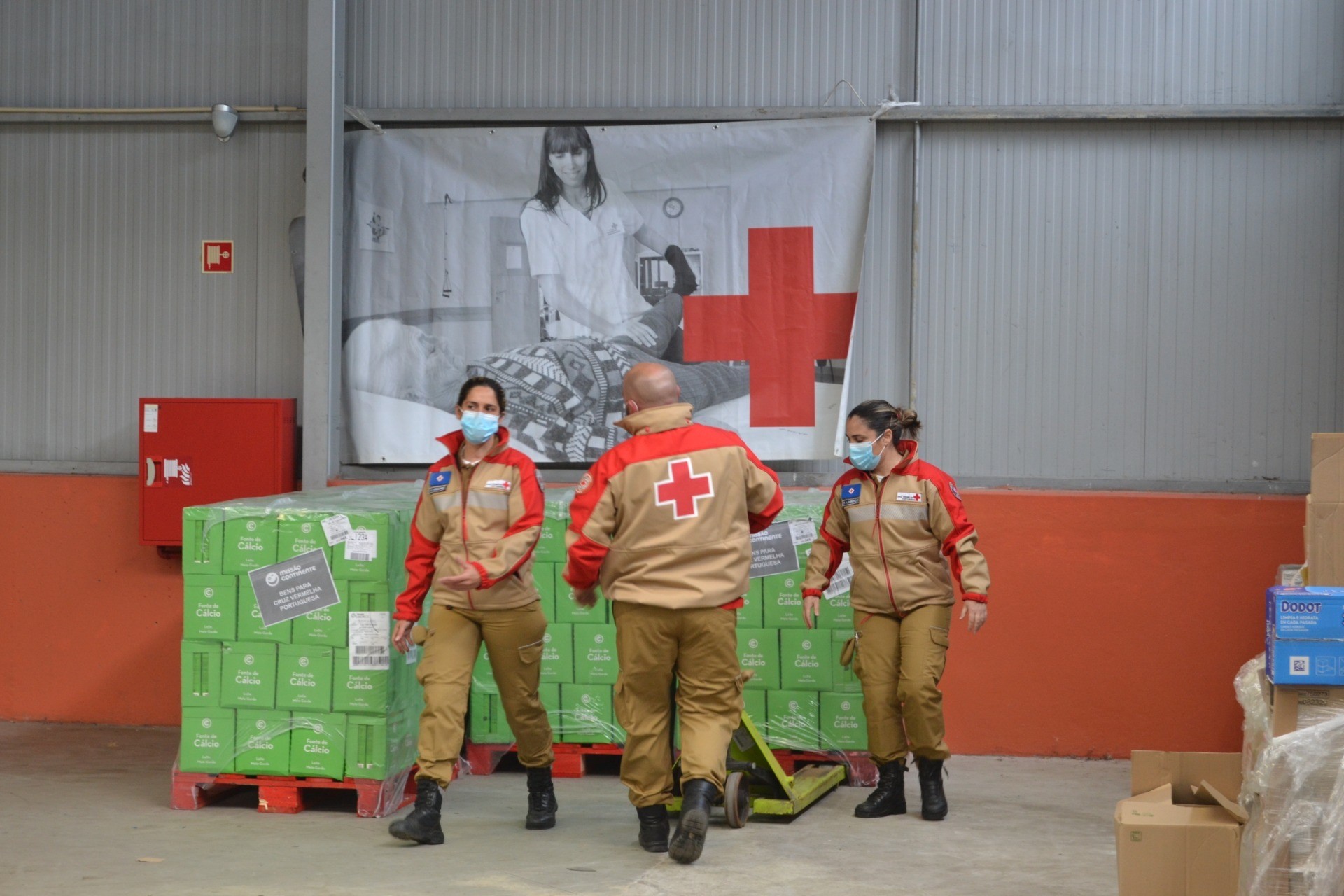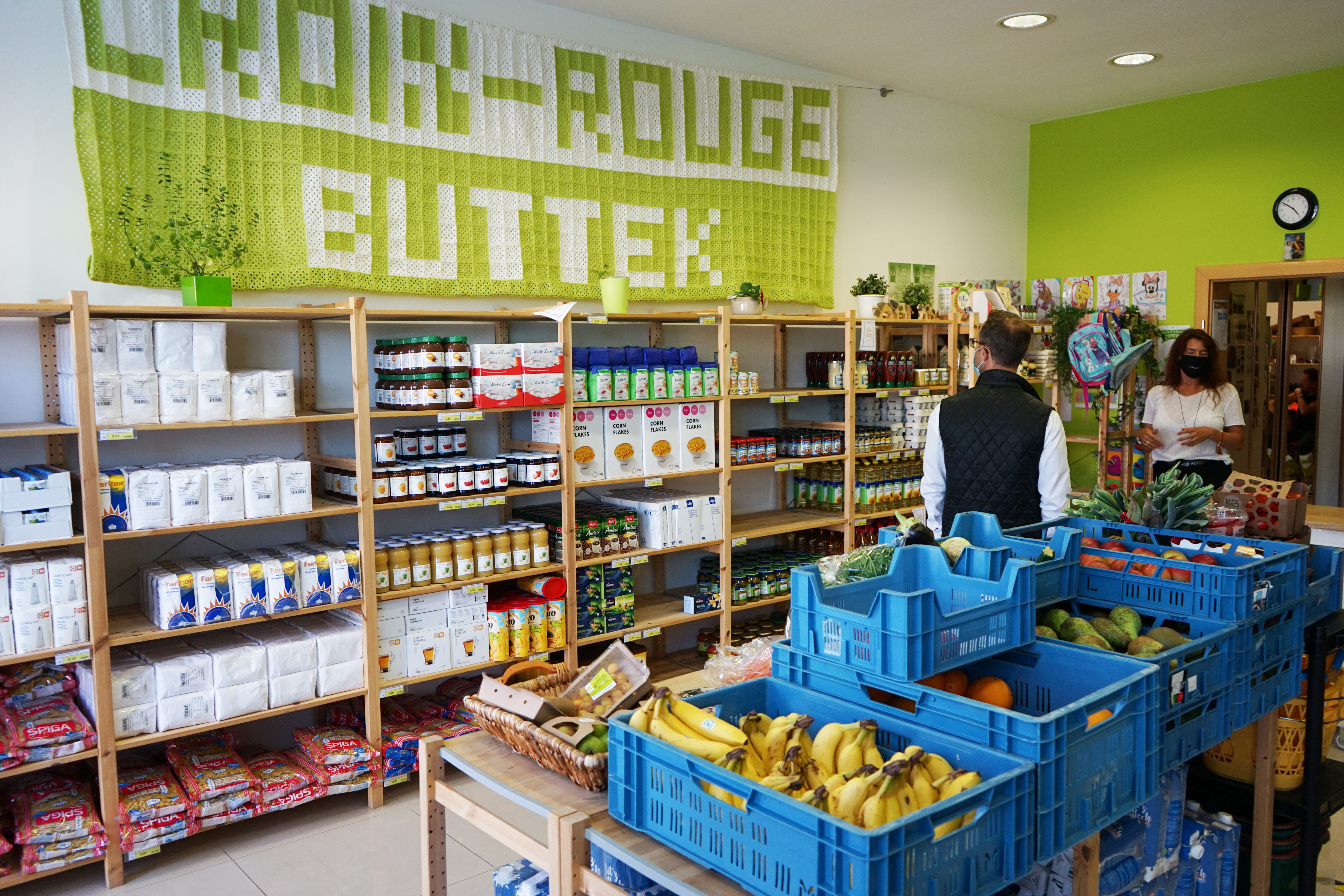COVID-19 conversations: Mental health will remain a challenge in the long run
In this new series of articles, we interview representatives of different National Red Cross Societies, one pair at a time, to learn more about the impact of COVID-19, and ways forward.
Today we are joined by:
- Nadine Conrardy
Head of Social Assistance, Luxembourg Red Cross
- Joana Rodrigues
Head of Social Action, Portuguese Red Cross
In retrospect, how did you experience the beginning of the pandemic? How did the work of your department change in response to it?
Joana Rodrigues (Portuguese Red Cross): In Portugal, things changed in the way people are dealing with each other. It affected the elderly, the young, the high-risk groups… and also the services we provide. We needed to adjust on the personal and the professional level. Everything shut down. It was a Friday when we got the news that schools will be closed. By Monday we took our work home. We asked ourselves: how do we care for senior citizens? How do we get food delivered where it is needed? The news from Italy and Spain were terrifying. The first two weeks were filled with adrenaline mixed with fear.
Nadine Conrardy (Luxembourg Red Cross): It was similar in Luxembourg. Some people tested positive, then numbers spiked, on a Monday the government ordered schools to close, by Sunday they declared the state of emergency. People could not come to work, and our childcare centres were closed. Many of our staff were scared, but asked for protection and continued the work. It was important that colleagues supported each other. Fortunately, the government reassured salaries would be covered regardless. Another good decision was granting special holidays for families with children under the age of 13, allowing one parent to stay at home. Adapting our services was a true learning experience. We run 14 centres for asylum seekers and refugees. The conditions were not ideal to protect people at risk, so together with the Ministry of Health we reassigned hotels to host elderly and refugees with health issues. And we opened another centre for residents who tested positive for COVID-19. For homeless people, Caritas Luxembourg, the Luxembourg Red Cross and other organisations continued the joint ‘Wanteraktioun’ (winter activity) including night shelter, day care and social assistance throughout the lockdown, relocated to one facility and opened another accommodation for those who needed to self-isolate. In addition, we re-opened a clinic as temporary COVID-19 hospital. We did this upon request by the government.

Joana Rodrigues (Portuguese Red Cross): The government came to us, too. We run different care facilities where people stay for the night, including asylum seekers, refugees and survivors of domestic violence. We needed to reorganize, set up rooms for self-isolation, and COVID-19 prevention measures. Authorities also requested help with elderly care. The Portuguese Red Cross runs homes for elderly, but for the pandemic, we were called to work in all care facilities in the country. This included setting up procedures to respond to infections, hiring of additional staff, the supply of protective gear and training on its use, as well as testing.
Nadine Conrardy (Luxembourg Red Cross): We heard that Portugal intervened quickly for people without residence permit. In Luxembourg this was noted as good practice example.
Joana Rodrigues (Portuguese Red Cross): Yes. Lack of access to healthcare means the virus can spread easier. Hence, with migrants we apply the same procedures as for the elderly: test, isolate the people infected, and care for them to protect everyone.
What are the most pressing issues now? How is your National Society approaching them?
Nadine Conrardy (Luxembourg Red Cross): We have many new rules. For the moment we are re-establishing services, with more interaction through WhatsApp, Messenger, Zoom and Teams. But in social work you cannot do everything from a distance. We hope the mix will help to lower the risk. Social offices and social groceries may welcome people who need assistance for the first time. We should reach out to them before it is too late.

Joana Rodrigues (Portuguese Red Cross): We also see more people asking for material and food assistance. We started cooperating with new partners to sustain the provision of goods, but we do not only respond to immediate needs, we also look at the long-term picture. People are requesting food on their table, and support to rebuild their lives. With COVID-19, we see “new poor” who used to earn enough to provide for the family but not enough to build up savings. With the pandemic kicking in, they lost the daily income; they apply for social benefits, but until those are paid, they have literally nothing.
Nadine Conrardy (Luxembourg Red Cross): In Luxembourg, people without permanent legal residence, such as European citizens with low pay on temporary contracts faced problems. And we see similar issues for sex workers. During lockdown they could not work, and they would not get accepted for other jobs.
What will the ‘new normal’ look like for your activities? How will you ensure care for those most affected by the crisis in the long-term?
Nadine Conrardy (Luxembourg Red Cross): We expect more people in need of assistance who would not have asked for anything before. They will hesitate to ask for help, and we will struggle to find them and provide support. Also because many may lose their jobs and their home, too. Housing had been an issue before, and it will get worse.
Joana Rodrigues (Portuguese Red Cross): We are also worried about the people who will need help, be it material aid, psychosocial support or assistance to restart an active economic life. We are looking for new ways to support the community, because we have to be well prepared for coming months.
Nadine Conrardy (Luxembourg Red Cross): We need temporary shelters, centres and hospitals to be fully operational. Fast. Because we know from experience: in times of pandemic, things are changing quickly. Networking with authorities and with other organisations has become increasingly important, in order to do our best together and respond to problems in an efficient way.
Joana Rodrigues (Portuguese Red Cross): I agree. There is also the need to adjust the way we do things. Financial support is needed, too, not least because the social field tends to be low priority for donors. They tend to prefer supporting the health sector, buying ventilators and protective equipment. The social sector is less straight forward. We look not only at the emergency but also at the long-term impact on the economy and the society. There is a lot of work waiting for us, even when the emergency may one day be over. Mental health will remain a challenge in the long run.
Additional information:
Other COVID-19 conversations:
- How to tackle rising needs and stigma
With the Hungarian Red Cross and the Slovenian Red Cross: in this link
- Digital or face-to-face help?
With the Danish Red Cross and the Finnish Red Cross: in this link
- The economic crisis is worrying
With the Romanian Red Cross and the Swedish Red Cross: in this link
- Stay safe while helping others
With the Belgian Red Cross and the Latvian Red Cross: in this link
For media inquiries, please contact Eva Oyón on: eva.oyon@redcross.eu or +32 2 235 09 22

